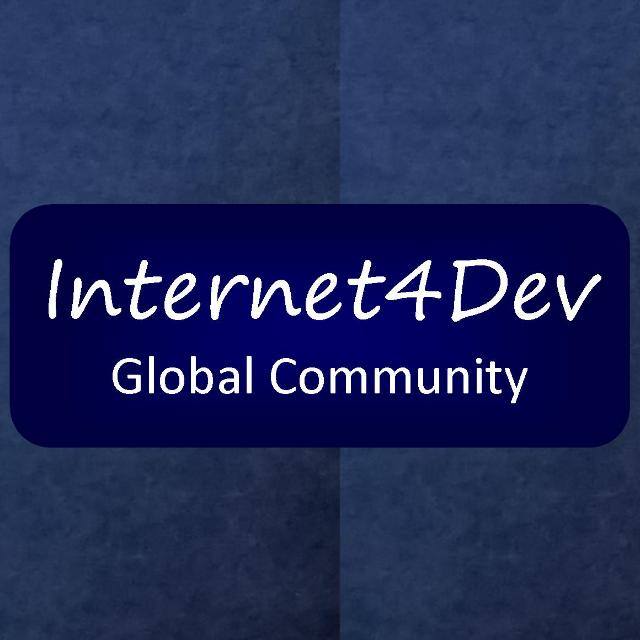INTERNET4DEV

☆☆☆
The Internet for Development Global Community
● Internet Innovators
● Internet of Things
● Internet Economy
● Internet Governance
● Internet Safety
● Internet for SDGs
The Internet for Development Global Community advocates for the use of the Internet for massive developmental and educational impact. It brings together industry leaders & bold innovators, shares information for growth, and holds thought leadership discussions and networking events.
The Internet has been remarkably successful in developing greater opportunities for communication access - and economic growth and social development - for the first billion users. The majority of the next several billion users will be mainly from developing countries and will connect to the Internet principally via wireless networks. But there are substantial discrepancies in access to ICTs between developed and developing countries and also within countries, depending on factors such as gender, rural coverage, skills and educational levels. Subscribe to join the discussions
Internet access is not a luxury, but a basic necessity for economic and human development in both developed and developing countries.
It is a powerful tool for the delivery of essential services such as education and healthcare, offers increased opportunities for women's empowerment and environmental sustainability, and contributes to enhanced government transparency and accountability. It also helps foster the social development of communities, including within the broader global context.
The challenge is to expand broadband access to all. Only about 35 percent of the population in developing countries has access to the Internet (versus about 80 percent in advanced economies). Broadband has also become a foundation for smart infrastructure (e.g. Intelligent Transport Systems and Smart Electric grids) that is facilitated by new wireless technologies. It can help create jobs in information and communication technology (ICT), engineering and other sectors, as well as help catalyze job skills development, an important avenue toward poverty reduction and shared prosperity.
In addition, broadband can help expand the reach of task-based work through online outsourcing platforms, which are projected to provide millions of jobs and billions of dollars in revenue over the coming years. Raising Internet penetration to 75 percent of the population in all developing countries (from the current level of approximately 35 percent) would add as much as US$2 trillion to their collective gross domestic product (GDP) and create more than 140 million jobs around the world.
The challenge is to expand broadband access, especially in rural areas. Even “digital divides” in access exist across regions and countries, such divides within countries have a disproportionate impact on rural communities and the poor. For example, while broadband use in the capital cities of India, the Kyrgyz Republic and Moldova and are at the same level as some Organization for Economic Co-operation and Development (OECD) members, usage in these three countries’ rural areas is among the lowest in the world. These disparities impede shared prosperity and constrain access to pathways out of poverty.
One possible solution for expanding broadband is to unleash private investment to the maximum extent possible, supplementing it where the social returns on these investments outweigh the private returns — for example, in rural areas where costs are high or revenues are low. This requires a mix of approaches to address a range of constraints.
Refs: World Bank, OECD